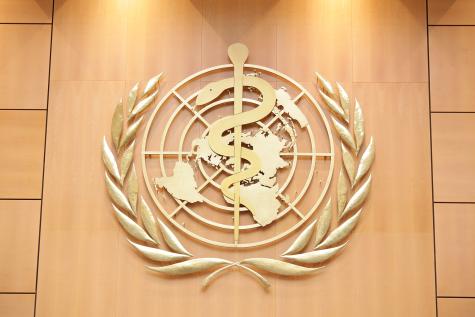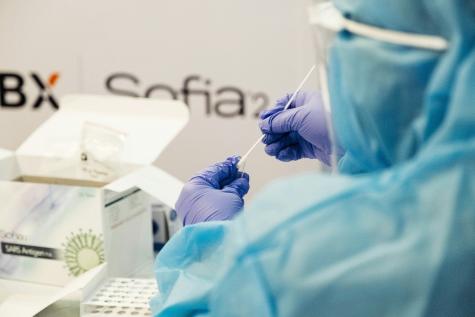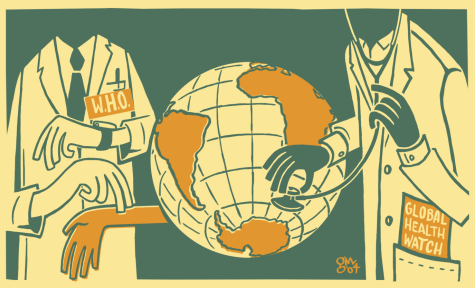WHO Pandemic Treaty

WHO Pandemic Treaty - International Collaboration for a Healthier Future
The Covid-19 pandemic was a huge eyeopener to global health organisations and world leaders about their unpreparedness to deal with large scale and fast spreading deadly infections. It was the worst health crisis since the 1940's, and was the first time that most of the world experienced strict lockdowns, restrictions to movement, and quarantines all at the same time.
Much criticism has been placed on those in charge for their poor pandemic responses and failure to implement measures which could have saved lives. Slowness to react, lack of preparedness and funding, vaccine inequality, and a general lack of consensus between countries prevented the implementation of effective global strategies.
Better World Info’s platform on the ➡️ WHO Pandemic Preparedness Treaty analyses this new strategy for global health security, financing, disease surveillance, vaccine equity, and the need for global collaboration and transparency.
Biodiversity loss, rapidly changing habitats, and over exploitation of the Earth’s precious resources puts animals into greater contact with humans and increases the risk of zoonotic diseases.
Recent studies also reveal that over half of infectious diseases have been worsened by climate change. The annual probability of extreme epidemics could increase threefold in the coming decades without serious intervention.
Global pandemics destroy lives, healthcare systems, livelihoods, education, and economies. The coronavirus death toll reached 7 million, it slashed global economic output by $8.5 trillion, it set back gender equality by decades, and human rights violations skyrocketed.
To allow governments to respond faster and more efficiently to global health emergencies and to prevent future generations from excessive suffering, the WHO proposed a Global Pandemic Treaty in November 2021. After many stalls and setbacks, WHO member states have now agreed to finalise the agreement in May 2024 at the 76th World Health Conference.
Alongside the implimentation of a treaty, WHO members are also discussing proposed amendments to the 2005 ➡️ International Health Regulations (IHR) with a focus on public health emergencies, future global security, equity, and the surveillance of high impact epidemics.

What is in the Pandemic Agreement?
A revised text of the pandemic treaty draft was released in March 2024 with a focus on solidarity, fairness, inclusion, gender, sustainability, and climate. Negotiations are still ongoing regarding access to medicines, reducing disparity between poor and rich countries, and patent protection. A central theme of the treaty is the facilitation of the production and distribution of vaccines in times of crisis.
The treaty also places emphasis on the importance of early warning systems, the strengthening of healthcare systems in general, transparency and easing the flow of information, the sharing of new technologies across borders, and stabilising global supply chains.
There is a huge need to create a global data collective and monitoring system to allow information on disease outbreaks to be shared quickly and easily. Financing will also play an important role in the case of developing nations, and in the promotion of the research and development of new drugs and vaccines against emerging diseases.

Criticism of the Pandemic Treaty and Fake News
A torrent of fake news surrounding the treaty has put negotiations at risk and fed into sensationalised stories and conspiracy theories. Other more serious criticism from governmental leaders expresses concern about their national rights and loss of autonomy over future global health issues.
There are fears about the centralisation of power and the potential ability of the WHO to implement international curfews or compulsory vaccination mandates. Both instances would constitute a violation of national sovereignty, and neither are mentioned in the draft text as measures that could take place.
The draft agreement still requires improvement, and we should not be distracted from the underlying message of solidarity and unity. Various sites offer fact checking services for clarity on contended issues, and we encourage those with concerns to read the draft and use our covid-19 news guide to help decipher fact from fiction.
The WHO cannot intervene in the sovereignty of states, and the preservation of national sovereignty is mentioned several times in the draft treaty. One of the key principles of the draft secures the power of states to prepare for, respond to, and combat future pandemics.
The treaty has been negotiated by all 194 member states, which means that all members have the opportunity to provide input and voice any concerns. Whilst it is true that the WHO can make recommendations and criticize states for their actions, it does not have the power to impose sanctions.
Concerns around data collection as an infringement on privacy and data protection are justifiable as some of the data mentioned goes beyond what would be necessary to assist in a pandemic situation. As the draft is yet to be finalised, we await to see if these concerns have been addressed.

Social Justice and the Influence of the Pharmaceutical Industry
At its core, the pandemic treaty is about the fairer distribution of vaccines, and the sharing of knowledge and other resources between poorer and richer countries. The coronavirus pandemic taught us that urgent measures are needed to narrow the gap between the two.
The COVAX initiative and its coordinators GAVI were co-founded by the WHO. They aimed to ensure more equitable access to covid-19 vaccines, particularly in low- and middle-income countries. Despite failing to hit key targets, it proved that global cooperation can be achieved. It also exposed the huge gap in support, lack of medicines, and vaccine availability in poorer nations.
The initiative was strongly criticised for its lack of transparency in its contracts with pharmaceutical companies, it was inhibited by pandemic profiteers, and it failed to expand vaccine production in low-income countries.
In current negotiations, the Equity Group and a group of African countries are demanding that they produce vaccines themselves and supply their own regions. This would prevent pharmaceutical companies from wealthier states who have access to greater funding and research facilities from reaping the profits of vaccine patents.
Each new draft of the treaty has revealed a weakening of promises and obligations from wealthier states on this matter as the greed of Big Pharma influences policy and weakens efforts towards greater cooperation.
When the interests of the pharmaceutical industry influence pandemic preparedness and response policies, this creates unequal distribution of resources and significant price hikes for vaccines and medicines.
Currently, there are no provisions in the draft contract which prevents influence by the pharmaceutical industry. The draft also fails to commit nations to the transfer of technology which is an essential component in the provision of fair distribution and supply of medical assets. According to a proposal from the EU Commission, the transfer of technology and know-how is based on voluntary action only.

The Pandemic Treaty – A Tool for a Better World?
The debate about the WHO pandemic treaty shows a high level of mistrust in science, governments, and transnational organisations. The Covid-19 pandemic has left deep marks on society, the economy, and our day-to-day lives. In many places, poor political decisions and a lack of reappraisal fuelled weak pandemic responses and preventable suffering.
False reports that use unfounded statements ignite social tensions, create populist sentiment, and widen divisions. Lies about WHO-controlled compulsory vaccination or the loss of national sovereignty distracts from the real goals of the pandemic treaty - a fairer distribution of medical resources and knowledge and a global defence against future pandemics.
Elite leaders in industry and Big Pharma so far have prevented this kind of global cooperation and a socially just approach in pursuit of money and power. Leading health organisations including Doctors Without Borders have called for clear obligations and binding rules on the transfer of knowledge and technology, as well as a suspension of patent law in the event of a global pandemic emergency.
To ensure a fair and just pandemic response in the future we must counteract monopolisation from pharmaceutical companies and to ensure that scientific findings and research investments are shared unequivocally.
Scientists all agree that the next pandemic is coming. Preparedness, international cooperation, and a fair distribution of funding, knowledge, and medicines are essential to avoid excessive mortality and suffering.
“How such a treaty is developed and what it looks like, and whether it is ratified, is a matter for our Member States – the nations of the world. We must leave a legacy for our children: a safer world for all.” - Dr. Tedros, Director-General of the WHO
German speakers should visit our partner site Bessere Welt Info for a European perspective on the WHO Pandemievertrag.
Author: Maximilian Stark, 28.03.24, translated and edited by Rachael Mellor 16.04.24 licensed under CC BY-NC-SA 4.0
For more information on the WHO Pandemic Treaty see below ⬇️
- International Treaty on Pandemic Prevention, Preparedness and Response - Wikipedia404704
- The global agreement on pandemics in a nutshell - European Council 406440
- Publication: Pandemic prevention, preparedness and response: Proposals for action - The Elders 30.01.25456075
- Global pandemic treaty will help fight future threats: top negotiator on how talks are going - Conversation 20.06.24420912
- Despite improved WHO regulations, the world remains ill-prepared for the next pandemic - Conversation 14.06.24420911
- At World Health Assembly, countries agree on efforts to boost pandemic preparedness - UN News 02.06.24417135
- Pandemic treaty talks end without agreed text, next step up for debate - Reuters 10.05.24412399
- Countries struggle to draft ‘pandemic treaty’ to avoid mistakes made during COVID - AP News 10.05.24412392
- Global pandemic agreement undermined by corporate interests - WSWS 18.04.24408014
- How to kill a pandemic treaty - Politico 02.04.24406435
- WHO Member States agree to resume negotiations aimed at finalizing the world’s first pandemic agreement - WHO 28.03.24404696
- Pharma Pivot on Pandemic Agreement: ‘Free Access’ to Pathogens in Exchange for ‘Binding Obligation’ on Equity - Health Policy Watch 21.03.24406462
- Call for urgent agreement on international deal to prepare for and prevent future pandemics - WHO 20.03.24404702
- Pharma Describes Draft Pandemic Agreement as a ‘Step Backwards’ - Health Policy Watch 12.03.24406461
- Deadline for pandemic treaty accord at risk, officials warn - FT 11.03.24404703
- The Pandemic Treaty: shameful and unjust - Lancet 02.03.24404697
- The new pandemic treaty: Are we in safer hands? Probably not - BMJ 22.02.24404700
- The West Is Sabotaging a Global Pandemic Treaty - Jacobin 18.02.24404707
- WHO member states are negotiating a pandemic treaty. But will countries follow the new rules? - The Bulletin 15.02.24404705
- Video: A Pact with the Future: Why the Pandemic Agreement is Mission-Critical for Humanity - WHO 12.02.24404698
- Why the world’s first pandemic treaty may never happen - Politico 03.01.24404709
- Revised draft of the negotiating text of the WHO Pandemic Agreement - WHO 03/24406454
- Research funders must join the fight for equal access to medicines - Nature 30.01.24406459
- WHO pandemic treaty: “Torrent of fake news” has put negotiations at risk, says WHO chief - BMJ 29.01.24406456
- Five Things We Need to See in the Pandemic Accord - MSF 22.01.24406460
- What is the pandemic treaty and what would it do? - Devex 04.12.23406439
- Draft “Pandemic Treaty” Fails to Protect Rights - HRW 07.11.23404701
- Joint Statement on the Draft “Pandemic Treaty”: Member States Should Include International Human Rights Obligations in Negotiated Text - Amnesty 07.11.23404710
- Equity and technology in the pandemic treaty - BMJ 03.11.23406447
- The world hopes to enact a pandemic treaty by May 2024. Will it succeed or flail? - NPR 21.09.23406441
- Why the pandemic treaty risks becoming COVID-19 groundhog day - Nature 19.09.23406442
- WHO Pandemic Treaty: The Good, The Bad, & The Ugly – An Interview With Larry Gostin - Health Policy Watch 14.09.23406434
- Costs divide rich, poor countries ahead of WHO Pandemic Treaty talks - Reuters 01.09.23406436
- We cannot give up on the global pandemic treaty - FT 31.08.23406457
- Can a WHO pandemic treaty help poorer nations in future outbreaks? - Guardian 10.08.23406455
- Defining 'equity' in the new WHO Pandemic Treaty - KCL 09.08.23406449
- Journal: From the Universal Declaration of Human Rights to a Pandemic Treaty: Will a Right to Medicines Forever be ‘Under Construction’? - Oxford 21.07.23406464
- Video: Pandemic Accord Explained with Steven Solomon - WHO 17.07.23404699
- Fact check: Conspiracy theories about the 'pandemic treaty' - DW 25.06.23404706
- Global plan for dealing with next pandemic just got weaker, critics say - Nature 01.06.23406433
- A WHO pandemic treaty would be a threat to our freedom - Telegraph 27.05.23406437
- The Pandemic Treaty must put people before Big Pharma profits - Oxfam 18.05.23406452
- A proper ‘pandemic treaty’ would value universal access over profit - HRW 19.04.23406443
- A proper ‘pandemic treaty’ would value universal access over profit - Open Democracy 19.04.23406463
- WHO's pandemic treaty: promises of equity should be kept - The Lancet 04/23406448
- Pandemic Treaty Zero Draft Misses the Mark on Human Rights: Joint public statement - Amnesty 24.02.23404711
- Can a new pandemic treaty avoid a repeat of Covid inequalities? - Global Justice Now 22.02.23406451
- WHO treaty hopes to overcome “catastrophic failures” of pandemic response - BMJ 14.02.23406438
- Equity in the Pandemic Treaty: Access and Benefit-Sharing as a Policy Device or a Rhetorical Device? - NCBI, 2023404708
- A pandemic treaty for equitable global access to medical countermeasures: seven recommendations for sharing intellectual property, know-how and technology - BMJ 07/22406458
- Pandemic treaty: a chance to level up on equity - BMJ 20.05.22406450
- Human Rights Principles for a Pandemic Treaty - ICJ 12/21406444
- The Case Against a Pandemic Treaty - Think Global Health 26.11.21406432
- Human Rights Must Guide a Pandemic Treaty - HHR 20.11.21406445
- Unless we address the inequity in global health, then the world will not be prepared for the next pandemic - NCBI 19.11.21406453
- An international pandemic treaty must centre on human rights - BMJ Opinion 10.05.21406446
- Video: Press briefing on pandemic treaty with Dr Tedros and Charles Michel - WHO 30.03.21404712